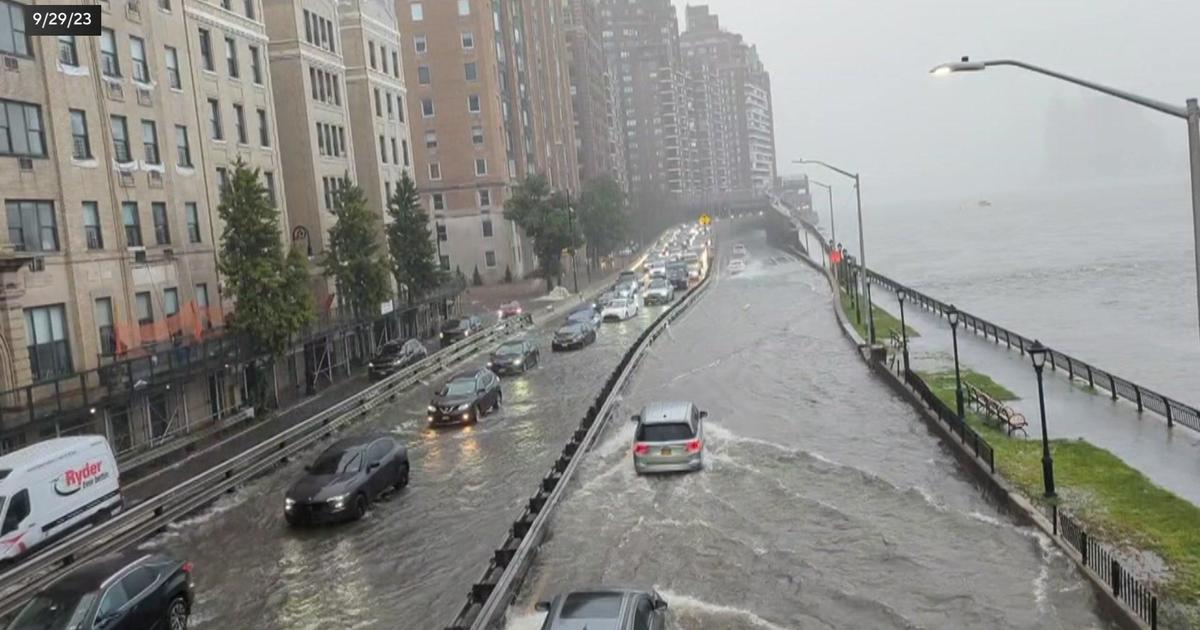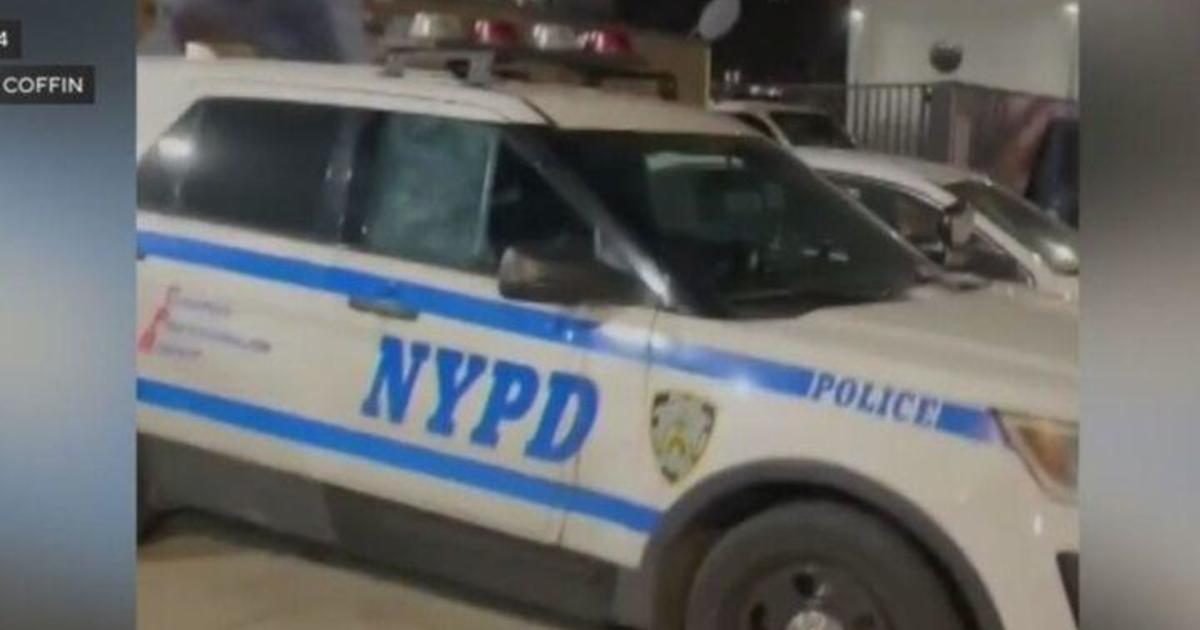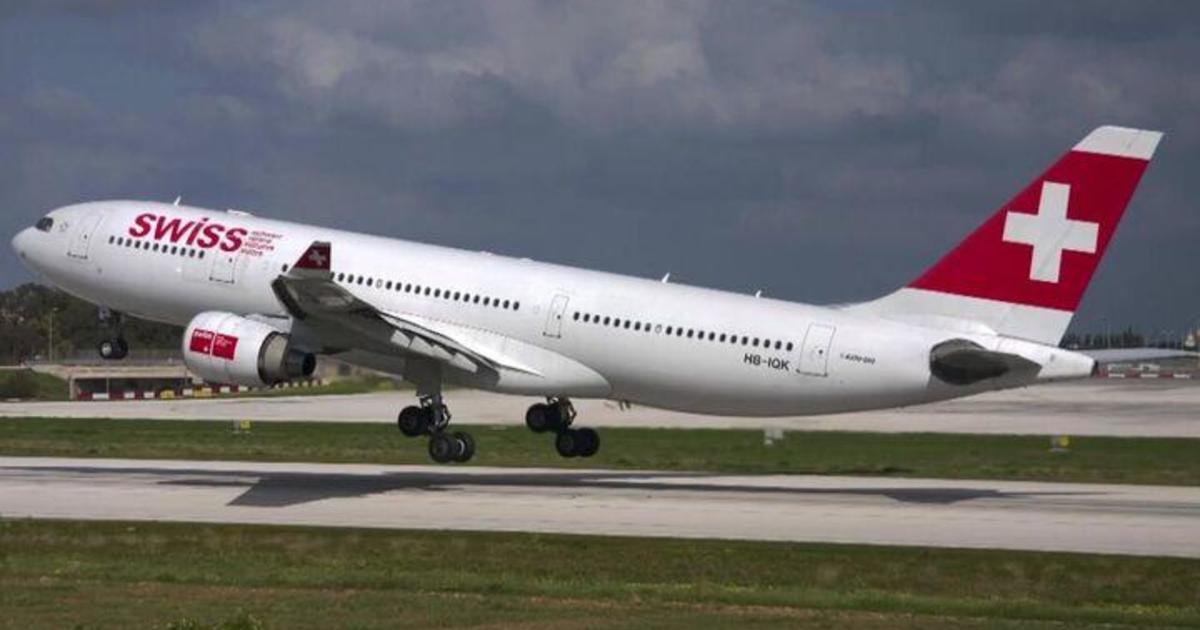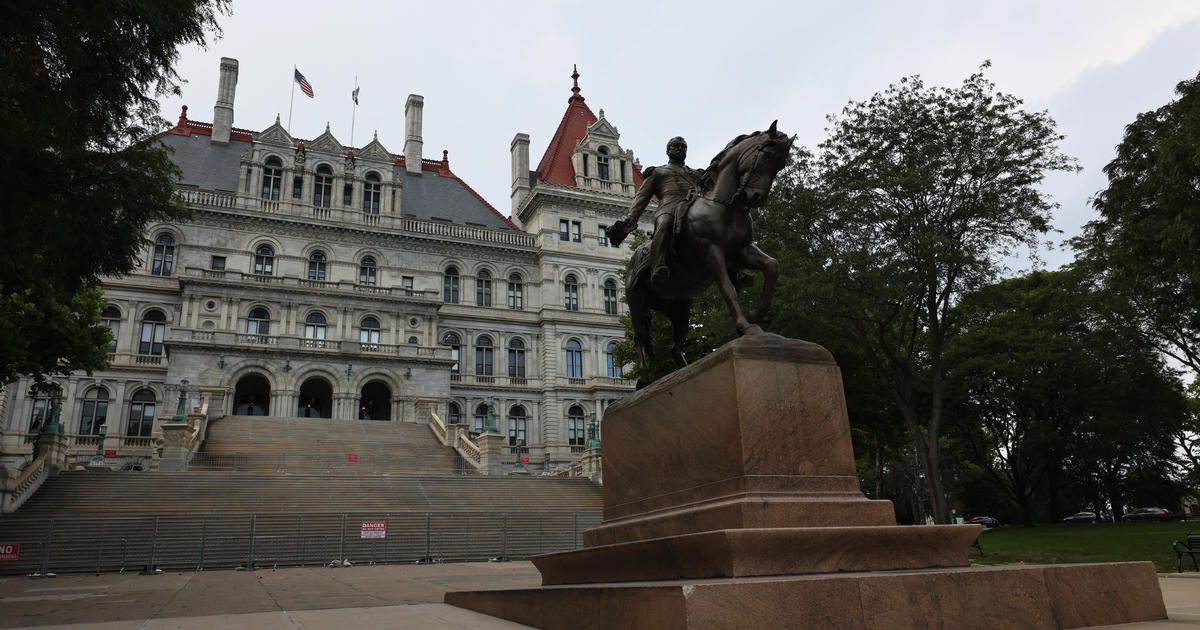Christie Cites Cost Concerns In Scrapping Tunnel Project
TRENTON, N.J. (AP / WCBS 880) -- In the end, it was all about dollars and cents.
That's what New Jersey Gov. Chris Christie said before permanently scrapping a $9 billion-plus rail tunnel connecting his state and New York City, a decision that cements his reputation as a cost-cutter and comes at the expense of commuters who endure frequent delays.
LISTEN: WCBS 880's Levon Putney on the project's possible future
Podcast
Christie confirmed Wednesday he is sticking by a decision made earlier this month to kill the nation's biggest public works project because of runaway costs. He rejected a variety of financial proposals offered by the federal government to salvage the tunnel under the Hudson River, saying none fully relieved New Jersey of responsibility for overruns.
"I said to them it's all about money," Christie said Wednesday night during Millennium Radio's "Ask the Governor" program. "I can't have a blank check, so they knew if they came back and said they'd cover all the overages, the project would have gone forward. If the federal government would have ever come forward and said 'we will take the risk of it going over budget and we'll cover it,' I would have had a very different press conference."
The Obama administration persuaded Christie to rethink the decision to pull the plug and two weeks later proposed a variety of options for keeping the tunnel on track. The proposals -- all of which were rejected by Christie -- included low-interest federal loans, a scaling-back of the project, and the use of public-private partnerships, which other cities have formed for large infrastructure projects.
In a memo to Christie, NJ Transit Director James Weinstein said that working out such a partnership would take time -- at least 18 months, and even then there would be no assurance that New Jersey would like the price or terms.
A law firm representing international transportation investors sent an Oct. 22 letter to a Christie ally expressing interest in exploring a partnership with the state. Christie vetoed it because it involved payback -- with interest -- to investors.
U.S. Transportation Secretary Ray LaHood's final offer came during a meeting Sunday: $358 million in additional federal money. The state and the Port Authority were each expected to put up similar amounts.
LaHood and Sen. Frank Lautenberg both disputed Christie's account of the financing deals as others expressed shock that the Republican governor was turning down $3 billion in federal funding. Transportation advocates, train riders, union leaders and some Democrats criticized the decision as foolishly shortsighted and contractors reeled at the loss of work in an industry with staggering unemployment.
The Port Authority of New York and New Jersey was also contributing $3 billion; New Jersey's share was $2.7 billion plus overruns.
"The governor was given a deal from the federal government on Sunday that put no extra imposition on the state of New Jersey for its obligation to the ARC Tunnel project, and the governor refused it," Lautenberg said.
The Democrat, who helped secure federal money for the project said: "The governor has once again put politics over performance."
Christie did raise one bit of hope Wednesday -- forming a partnership with Amtrak to build a new tunnel -- then stressed that no substantive discussions had taken place.
New Jersey will have to repay the federal government up to $350 million of the money already spent. That follows the loss a $400 million federal education grant, which New Jersey missed out on after hastily rewriting its application on the governor's orders.
The tunnel was intended to supplement a century-old two-track tunnel that has been at capacity for years. The new tunnel would have been able to handle an extra 25 NJ Transit trains per hour during peak periods; without it, New Jersey is left a tunnel that can handle 23 Amtrak and NJ Transit trains.
More than 625,000 people trek into Manhattan from New Jersey each work day, about 185,000 by rail, and even a minor derailment or delay translates into long stretches of waiting for trains to get to and from work.
On Monday, an eight-car train derailed outside Pennsylvania Station, snarling the evening commute for tens of thousands.
"The governor is sacrificing the future for this illusion of current responsibility," said Zoe Baldwin, spokeswoman for the Tri-State Transportation Campaign, an advocacy group. "This tunnel would have been a long-term investment in the state's economic vitality. Everyone is stuck trying to get across the river, and that's not going to change."
Timothy Barnard, CEO of Barnard Construction Co. of Bozeman, Mont., which shared a half-billion-dollar contract to drill the final phase of the tunnel from Manhattan's West Side to underneath Penn Station, said his company spent $1 million preparing its bid and another $3 million since last November when the bid was accepted.
"To say it's very disappointing would be an understatement," Barnard said Wednesday.
Barnard said his company employs 300 to 1,500 people depending on what projects it takes on; the cancellation of the tunnel means the company won't be adding employees as it had planned to do, he said.
The decision to abandon construction more than a year after it began burnished Christie's reputation as a cost-slasher, gained, in part, by closing an $11 billion budget gap his first months in office. He also gained notoriety by pushing the powerful teachers union for wage givebacks, then urging voters to shoot down school budgets in towns where teachers didn't agree. He's perhaps the most demanded Republican on the campaign trail this fall, taking his message of fiscal prudence on the stump in Pennsylvania, Iowa and California, and appearing frequently on syndicated radio and television programs.
The cancellation frees up the $3 billion in federal funds and leaves several potential benefactors, including transit projects in Los Angeles, Denver, San Francisco, the Washington suburbs and New York City. New York is trying to complete a new subway line on Manhattan's East Side.
"The governor can open any high school history text to see why his decision to kill the tunnel is so foolish," said state Senate President Stephen M. Sweeney, a Democrat. "Imagine where our country would be if it were not for the backbone built by 200 years of investments in roads, canals, railroads or the interstates."



